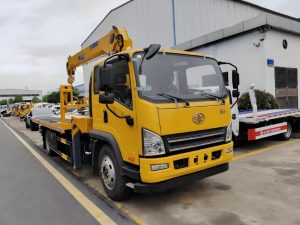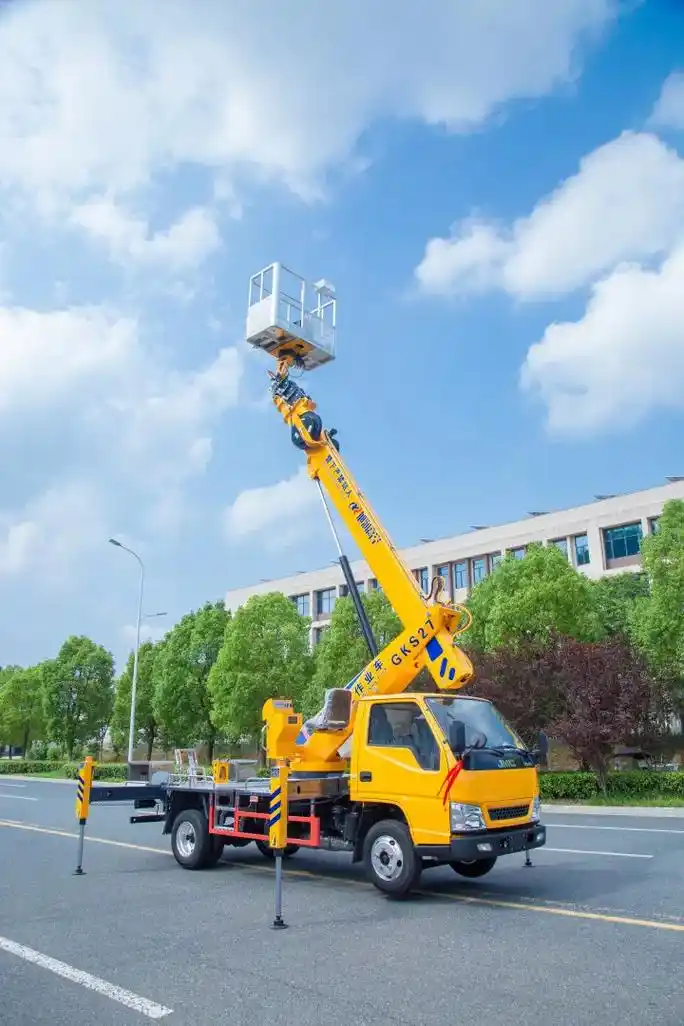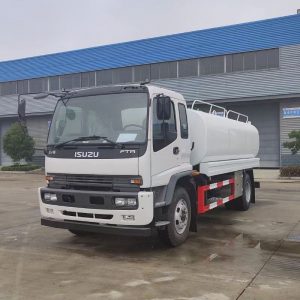Table of Contents
ToggleWhen you think of heavy-duty vehicles, what comes to mind? Perhaps a massive dump truck or a sleek fire engine? But let’s take a moment to shine a light on a true workhorse of the industry: the vacuum truck. These machines are often overlooked, yet they play a crucial role in various sectors, from construction to environmental cleanup. So, what exactly is a vacuum truck, and why should we care? Let’s dive in!
What is a Vacuum Truck?
At its core, a vacuum truck is a specialized vehicle designed to suck up liquids, sludges, and even solids from various locations. Think of it as a giant, mobile vacuum cleaner, but instead of cleaning your living room, it’s tackling some of the messiest jobs imaginable.
The Anatomy of a Vacuum Truck
To truly appreciate the functionality of a vacuum truck, it’s essential to understand its components.
Key Components
- Tank: This is where all the collected materials are stored. Depending on the truck’s size, tanks can hold anywhere from a few hundred to several thousand gallons.
- Vacuum Pump: The heart of the operation, this pump creates a vacuum that sucks up the materials. There are various types of pumps, each suited for different tasks.
- Hoses and Nozzles: These are the tools that connect the truck to the site of the job. They come in various lengths and diameters, allowing for flexibility in different situations.
- Controls: Operators use these to manage the vacuum and the discharge of materials.
- Chassis: The truck’s frame, which supports all the components and allows for mobility.

How Do Vacuum Trucks Work?
Now that we know what a vacuum truck is, let’s explore how it actually works.
The Vacuum Process Explained
The operation begins with the vacuum pump creating a low-pressure area inside the tank. This pressure difference allows external atmospheric pressure to push the liquid or sludge into the tank through the hoses. It’s a simple yet effective process that can handle a variety of materials.
Types of Vacuum Pumps
There are several types of vacuum pumps used in vacuum trucks, including:
- Positive Displacement Pumps: These are commonly used for liquids and sludges. They work by trapping a fixed amount of material and then forcing it into the tank.
- Liquid Ring Pumps: Ideal for handling wet materials, these pumps use a rotating liquid to create a vacuum.
- Rotary Vane Pumps: These are versatile and can handle both liquids and solids, making them a popular choice for many applications.
Applications of Vacuum Trucks
So, where do we see these vacuum trucks in action? The applications are vast and varied.
Industrial Uses
In industrial settings, vacuum trucks are essential for cleaning up spills, removing waste, and maintaining equipment. They can handle everything from oil spills to hazardous materials, ensuring that workplaces remain safe and compliant with regulations.
Environmental Cleanup
One of the most critical roles of vacuum trucks is in environmental cleanup. Whether it’s a chemical spill or a natural disaster, these trucks are often the first responders, helping to mitigate damage and restore the area.
Municipal Services
Cities and towns also rely on vacuum trucks for various services, such as cleaning sewer systems, maintaining storm drains, and even removing debris from public spaces. They help keep our communities clean and functioning smoothly.
Benefits of Using Vacuum Trucks
Why should businesses and municipalities invest in vacuum trucks? The benefits are numerous.
Efficiency and Cost-Effectiveness
Vacuum trucks can complete tasks much faster than manual methods. This efficiency translates to cost savings, as fewer labor hours are needed to get the job done. Plus, they can handle larger volumes of material, reducing the number of trips required.
Safety Considerations
Using vacuum trucks also enhances safety. By removing hazardous materials quickly and efficiently, they minimize the risk of accidents and health hazards for workers and the public.
Choosing the Right Vacuum Truck
With so many options available, how do you choose the right vacuum truck for your needs?
Factors to Consider
- Size and Capacity: Consider the volume of material you’ll be handling. Larger tanks can hold more but may be less maneuverable in tight spaces.
- Type of Material: Different pumps are suited for different materials. Make sure to choose a truck that can handle the specific substances you’ll be working with.
- Terrain and Accessibility: If you’re working in rugged or hard-to-reach areas, you’ll need a truck that can navigate those conditions.
Maintenance Tips for Vacuum Trucks
Like any heavy machinery, vacuum trucks require regular maintenance to keep them running smoothly.
Regular Checks and Balances
Routine inspections of the vacuum pump, hoses, and tank are essential. Look for signs of wear and tear, and address any issues before they become major problems.
Common Issues and Solutions
Some common issues include clogs in the hoses or pump malfunctions. Regular cleaning and servicing can help prevent these problems and extend the life of the truck.
Future Trends in Vacuum Truck Technology
As technology advances, so do vacuum trucks.
Innovations on the Horizon
Expect to see more automated features, improved fuel efficiency, and enhanced safety systems in the coming years. These innovations will make vacuum trucks even more effective and user-friendly.
Eco-Friendly Developments
With a growing emphasis on sustainability, many manufacturers are focusing on creating eco-friendly vacuum trucks that minimize environmental impact. This includes using alternative fuels and materials that reduce emissions.
Conclusion: The Importance of Vacuum Trucks
In conclusion, vacuum trucks are vital to many industries and services. They may not be the flashiest vehicles on the road, but their contributions to safety, efficiency, and environmental protection are invaluable. So, the next time you see one of these unsung heroes in action, take a moment to appreciate the hard work they do behind the scenes!
Case Study 1: Industrial Cleanup
Imagine a manufacturing plant that has just experienced a significant spill of hazardous materials. The situation is urgent, and the safety of workers and the environment is at stake. Enter the vacuum truck.
In this scenario, a vacuum truck equipped with a liquid waste pump is deployed. The operator quickly connects the hoses to the spill site, and within minutes, the hazardous material is being sucked into the truck’s tank. This rapid response not only mitigates the risk of contamination but also ensures compliance with environmental regulations.
The efficiency of the vacuum truck allows the plant to resume operations much sooner than if they had relied on manual cleanup methods. This case highlights the importance of having vacuum trucks readily available in industrial settings, where time is often of the essence.
Case Study 2: Municipal Waste Management
Let’s shift gears and look at a city’s approach to maintaining its sewer systems. Many municipalities face challenges with aging infrastructure, leading to blockages and overflows.
In this case, a city has invested in a fleet of combination vacuum trucks. These trucks are capable of handling both liquid and solid waste, making them incredibly versatile. During routine maintenance, the vacuum truck is used to clean out storm drains and sewer lines.
The operator uses the truck’s powerful suction to remove debris, leaves, and sludge that have accumulated over time. This proactive approach not only prevents flooding during heavy rains but also extends the life of the city’s sewer system.
Residents appreciate the city’s efforts to keep their streets clean and safe, and the municipality saves money in the long run by avoiding costly repairs and emergency responses.
User Testimonials: What Operators Say
Hearing from those who operate vacuum trucks can provide valuable insights into their effectiveness and reliability. Here are a few testimonials from operators in different sectors:
Testimonial 1: Industrial Operator
“I’ve been operating vacuum trucks for over a decade, and I can’t stress enough how crucial they are in our line of work. When we have a spill, every second counts. The vacuum truck allows us to respond quickly and efficiently. It’s not just about cleaning up; it’s about keeping our team safe and ensuring we meet regulatory standards.”
Testimonial 2: Municipal Worker
“As a city worker, I’ve seen firsthand how vacuum trucks can transform our waste management efforts. They make our jobs easier and help us maintain a clean environment for our residents. Plus, the combination trucks are a game-changer. We can tackle multiple tasks with one vehicle, which saves us time and money.”
Testimonial 3: Environmental Cleanup Specialist
“In environmental cleanup, we often deal with hazardous materials that require immediate attention. Vacuum trucks are our best friends in these situations. They allow us to contain spills quickly and safely, minimizing the impact on the environment. I can’t imagine doing this job without them.”
Future Trends in Vacuum Truck Technology
As we look ahead, the vacuum truck industry is poised for exciting advancements. Here are some trends to watch for:
1. Automation and Smart Technology
The future of vacuum trucks may involve increased automation. Imagine a vacuum truck equipped with sensors that can detect blockages in sewer lines or monitor the tank’s capacity in real-time. This technology could streamline operations and enhance efficiency, allowing operators to focus on other critical tasks.
2. Eco-Friendly Innovations
With growing concerns about environmental sustainability, manufacturers are developing vacuum trucks that use alternative fuels, such as electric or hybrid systems. These eco-friendly options will not only reduce emissions but also lower operating costs for businesses and municipalities.
3. Enhanced Safety Features
Safety will always be a priority in the operation of vacuum trucks. Expect to see more advanced safety features, such as backup cameras, collision detection systems, and improved visibility for operators. These enhancements will help prevent accidents and ensure the safety of both workers and the public.
4. Improved Waste Processing Technologies
As waste management practices evolve, vacuum trucks will likely incorporate new technologies for processing and disposing of collected materials. This could include on-board treatment systems that allow for immediate processing of hazardous waste, reducing the need for transportation to disposal sites.
Conclusion: The Importance of Vacuum Trucks
In wrapping up our comprehensive look at vacuum trucks, it’s clear that these machines are indispensable in various sectors. From industrial cleanup to municipal waste management, vacuum trucks play a vital role in maintaining safety, efficiency, and environmental protection.
As technology continues to advance, we can expect vacuum trucks to become even more effective and eco-friendly. Whether you’re a business owner, a municipal worker, or simply someone interested in waste management, understanding the significance of vacuum trucks is essential. They may not be the most glamorous vehicles on the road, but their contributions to our communities and industries are invaluable.
So, the next time you see a vacuum truck in action, take a moment to appreciate the hard work and dedication that goes into keeping our world clean and safe. These unsung heroes deserve our recognition and respect!







